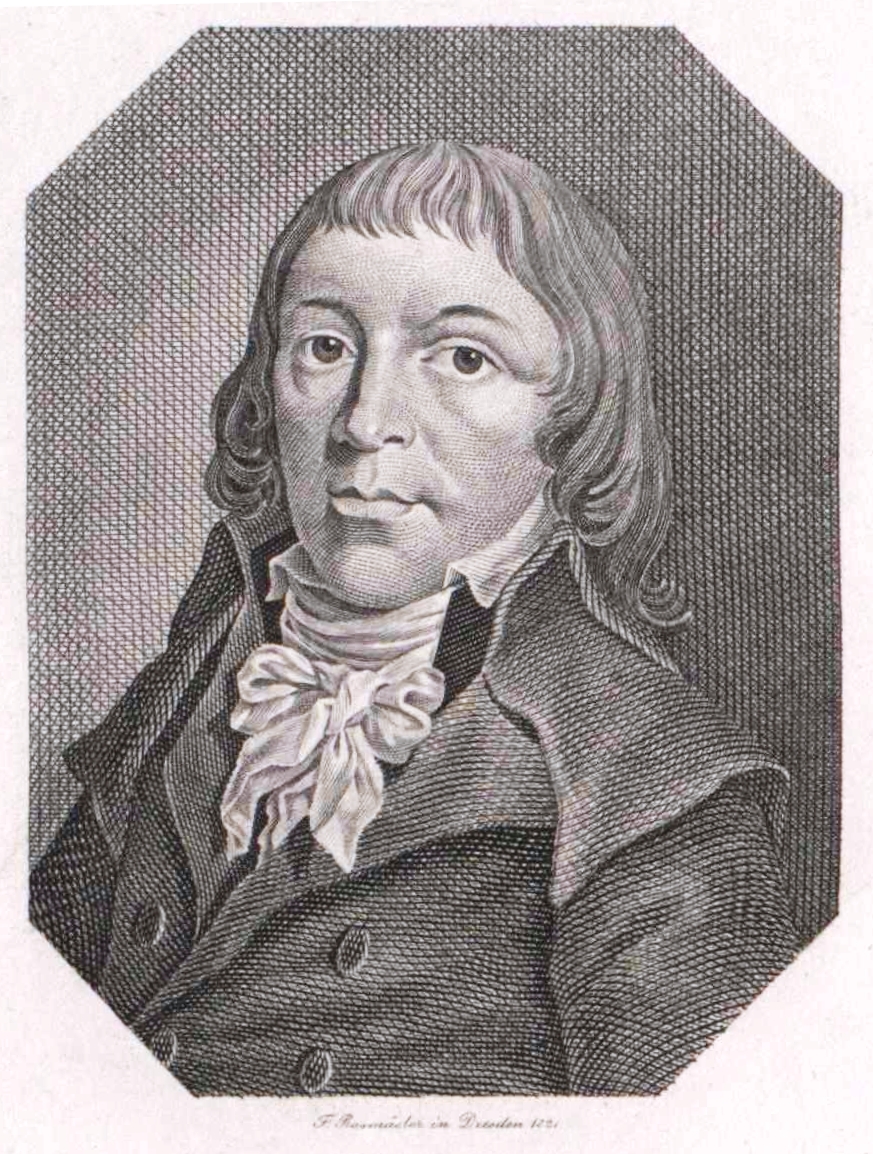Ludwig Gotthard Kosegarten on:
[Wikipedia]
[Google]
[Amazon]
 Ludwig Gotthard Kosegarten (1 February 1758 – 26 October 1818), also known as Ludwig Theobul or Ludwig Theoboul, was a German
Ludwig Gotthard Kosegarten (1 February 1758 – 26 October 1818), also known as Ludwig Theobul or Ludwig Theoboul, was a German
 Ludwig Gotthard Kosegarten (1 February 1758 – 26 October 1818), also known as Ludwig Theobul or Ludwig Theoboul, was a German
Ludwig Gotthard Kosegarten (1 February 1758 – 26 October 1818), also known as Ludwig Theobul or Ludwig Theoboul, was a German poet
A poet is a person who studies and creates poetry. Poets may describe themselves as such or be described as such by others. A poet may simply be the creator ( thinker, songwriter, writer, or author) who creates (composes) poems ( oral or wri ...
and Lutheran
Lutheranism is one of the largest branches of Protestantism, identifying primarily with the theology of Martin Luther, the 16th-century German monk and Protestant Reformers, reformer whose efforts to reform the theology and practice of the Cathol ...
preacher
A preacher is a person who delivers sermons or homilies on religious topics to an assembly of people. Less common are preachers who preach on the street, or those whose message is not necessarily religious, but who preach components such as ...
.
Kosegarten was born in Grevesmühlen
Grevesmühlen () is a Municipalities of Germany, municipality in Mecklenburg-Vorpommern, northern Germany. It was the seat of the Nordwestmecklenburg district until 2011, when Wismar became the seat. It is situated 33 km east of Lübeck, and ...
, in the Duchy of Mecklenburg-Schwerin. After studying theology
Theology is the systematic study of the nature of the divine and, more broadly, of religious belief. It is taught as an academic discipline, typically in universities and seminaries. It occupies itself with the unique content of analyzing the ...
at the University of Greifswald
The University of Greifswald (; german: Universität Greifswald), formerly also known as “Ernst-Moritz-Arndt University of Greifswald“, is a public research university located in Greifswald, Germany, in the state of Mecklenburg-Western Pom ...
, he served as the pastor
A pastor (abbreviated as "Pr" or "Ptr" , or "Ps" ) is the leader of a Christian congregation who also gives advice and counsel to people from the community or congregation. In Lutheranism, Catholicism, Eastern Orthodoxy, Oriental Orthodoxy and ...
of Altenkirchen
Altenkirchen () is a town in Rhineland-Palatinate, Germany, capital of the district of Altenkirchen. It is located approximately 40 km east of Bonn and 50 km north of Koblenz. Altenkirchen is the seat of the ''Verbandsgemeinde'' ("co ...
on the island of Rügen
Rügen (; la, Rugia, ) is Germany's largest island. It is located off the Pomeranian coast in the Baltic Sea and belongs to the state of Mecklenburg-Western Pomerania.
The "gateway" to Rügen island is the Hanseatic city of Stralsund, where ...
, then part of Swedish Pomerania
Swedish Pomerania ( sv, Svenska Pommern; german: Schwedisch-Pommern) was a dominion under the Swedish Crown from 1630 to 1815 on what is now the Baltic coast of Germany and Poland. Following the Polish War and the Thirty Years' War, Sweden held ...
.
After his ordination in 1792 he was given the rectorate in the parish church of Altenkirchen
Altenkirchen () is a town in Rhineland-Palatinate, Germany, capital of the district of Altenkirchen. It is located approximately 40 km east of Bonn and 50 km north of Koblenz. Altenkirchen is the seat of the ''Verbandsgemeinde'' ("co ...
on Rügen
Rügen (; la, Rugia, ) is Germany's largest island. It is located off the Pomeranian coast in the Baltic Sea and belongs to the state of Mecklenburg-Western Pomerania.
The "gateway" to Rügen island is the Hanseatic city of Stralsund, where ...
. In this capacity he gave the famous shore sermons on the cliffs near Vitt
The fishing village of Vitt lies on the German Baltic Sea island of Rügen, more precisely on the Wittow peninsula near Cape Arkona. The village is part of the municipality of Putgarten. Because of its location in a coastal gully on the cliffed ...
. He went there to the herring fishermen, who during the time of herring fishing could not go to the church in Altenkirchen due to their work. These sermons were a great success, which is why the Vitt Chapel was erected in 1806. During his stay on Rügen he wrote many reports about the island, that made both Rügen and Kosegarten famous.
Kosegarten's books were burned at the Wartburg festival on 18 October 1817. He influenced the work of Philipp Otto Runge
Philipp Otto Runge (; 1777–1810) was a German artist, a draftsman, painter, and color theorist. Runge and Caspar David Friedrich are often regarded as the leading painters of the German Romantic movement.Koerner, Joseph Leo. 1990. ''Caspar Dav ...
, Caspar David Friedrich, and the music of Franz Schubert
Franz Peter Schubert (; 31 January 179719 November 1828) was an Austrian composer of the late Classical and early Romantic eras. Despite his short lifetime, Schubert left behind a vast ''oeuvre'', including more than 600 secular vocal wo ...
.
References
*Lewis Holmes. ''Kosegarten: The Turbulent Life & Times of a Northern German Poet.'' Peter Lang, Jan 1, 2004 {{DEFAULTSORT:Kosegarten, Ludwig Gotthard 1758 births 1818 deaths People from Grevesmühlen People from the Duchy of Mecklenburg-Schwerin 18th-century German Lutheran clergy German poets Writers from Mecklenburg-Western Pomerania University of Greifswald alumni German male poets 19th-century German Lutheran clergy